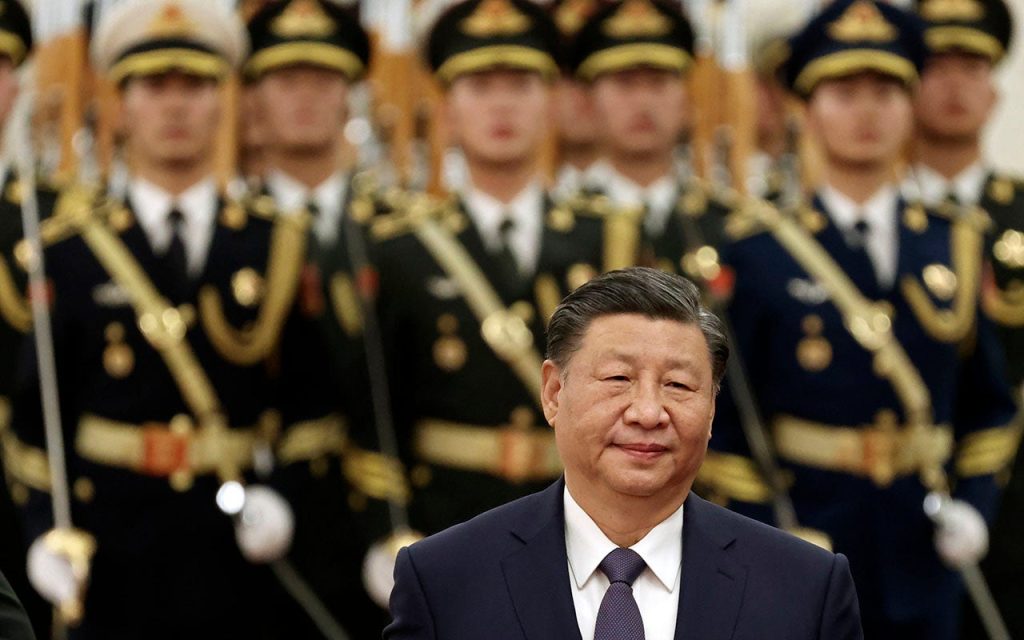China is currently undergoing a significant military build-up, the likes of which have not been seen since the 1930s. Chuck DeVore, a retired Army lieutenant colonel, highlighted the Pentagon’s report to Congress detailing China’s military operations, including the expansion of their nuclear arsenal, the growth of their navy, and the development of hypersonic missiles capable of evading U.S. defenses. The Department of Defense’s report also mentions China’s focus on cognitive domain operations, which utilize advanced technologies to influence public opinion and decision-making to achieve strategic national security goals.
DeVore emphasized the urgency for the United States to reallocate resources within the Pentagon to prioritize naval strength, nuclear deterrence, missile defense, and logistics in order to effectively address the growing Chinese threat. He pointed out that China’s focus on naval power poses a considerable challenge as navies are more difficult to build up compared to land power. With China’s naval capabilities surpassing that of the U.S., DeVore stressed the need for modernization and increased efforts in missile defense to bridge the gap.
The Department of Defense’s report revealed China’s extensive military developments, including the expansion of their nuclear arsenal to potentially over 1,000 warheads by 2030. China has also increased its missile capabilities, with over 600 operational nuclear warheads and expected growth to over 1,000 by 2030. Additionally, the report highlighted China’s advancements in hypersonic missiles, with the capability to target locations such as Guam, Hawaii, and Alaska, while evading U.S. defenses.
China’s military strategy also involves psychological warfare through cognitive domain operations, which leverage modern internet technologies and communication platforms to influence public opinion and decision-making. The goal of these operations is to achieve ‘mind dominance,’ influencing individuals and societies to create an environment favorable to China’s interests and reduce resistance to their actions. The report suggests that China views cognitive domain operations as an asymmetric capability to deter potential conflicts and shape perceptions or polarize societies.
The People’s Liberation Army, the military arm of the Chinese Communist Party, is focused on expanding its influence operations globally and achieving information dominance on the battlefield. Through research and development, the PLA aims to enhance its psychological warfare capabilities with emerging technologies such as artificial intelligence, big data, brain science, and neuroscience. By utilizing cognitive domain operations, the PLA seeks to pressure opponents psychologically and instill fear without direct combat, viewing this approach as the highest realm of warfare.
In response to the evolving Chinese threat, DeVore and other experts are calling for strategic reallocation of U.S. military resources to address the growing military capabilities of China. With China’s significant investments in naval power, nuclear arsenal expansions, and psychological warfare tactics, the United States must prioritize modernization and innovation in key areas to maintain its strategic advantage. By recognizing and addressing the challenges posed by China’s military build-up, the U.S. can effectively mitigate potential threats and ensure national security in the face of rising global tensions.














